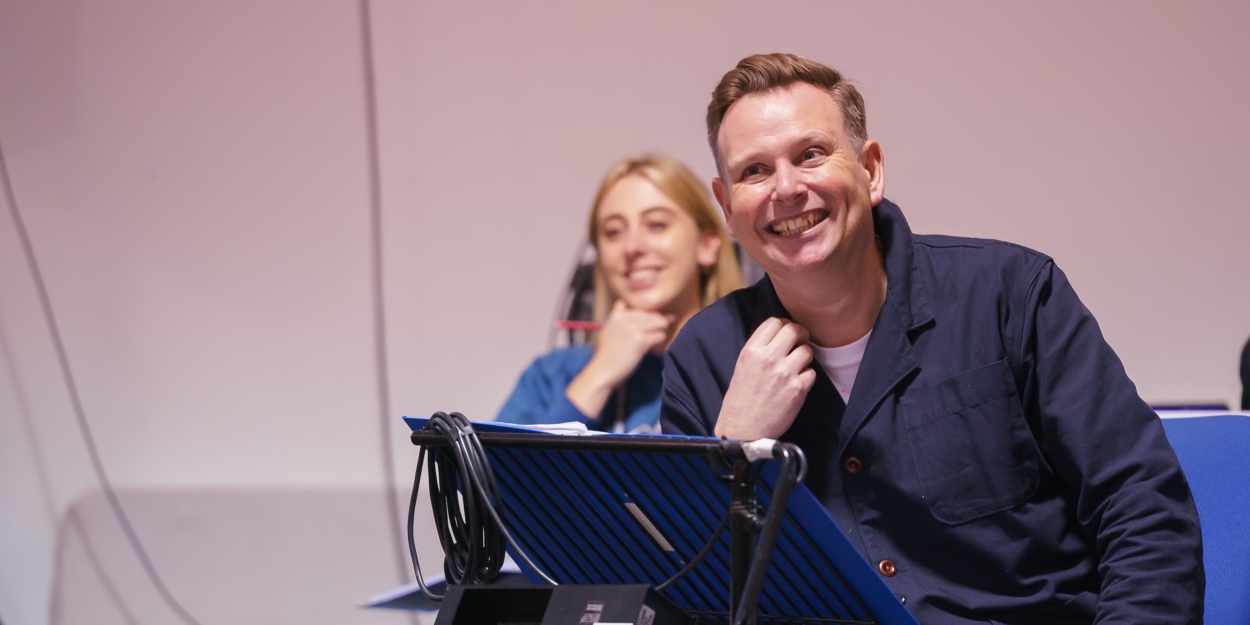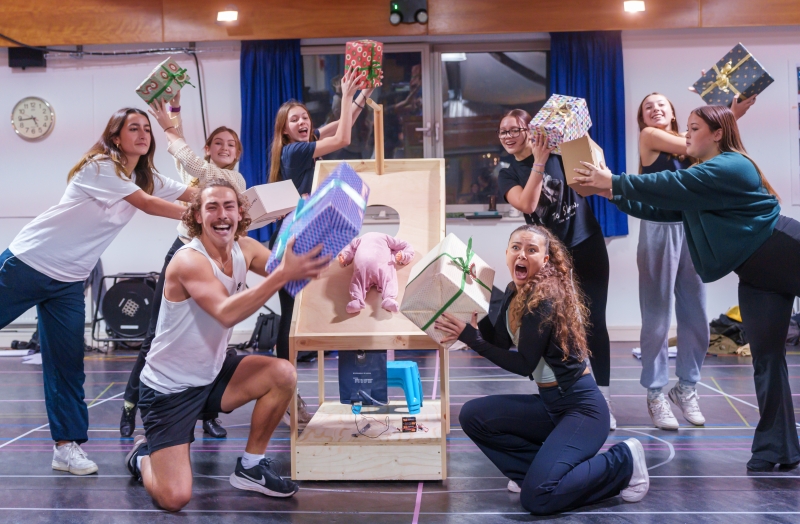Guest Blog: 'Panto is a Gateway Drug': Director Ryan McBryde on Creating SLEEPING BEAUTY at Salisbury Playhouse
'Pantomime is more than just a festive tradition, it is without doubt, the most inclusive, most magical of theatre experiences.'

I’m covered in glitter and surrounded by the kind of costumes that would give Ru Paul’s Drag Race a run for its money. It must be panto season again.
Often seen as a frivolous and kitsch addition to the theatre calendar, pantomime is in fact one of the most important productions of the year, acting as a community builder, a gateway drug, and a festive tradition. It's a time-honoured tradition that originates from commedia dell’arte, a popular form of Italian theatre that emphasised ensemble acting and improvisation. As it arrived in the UK it was fused with Victorian Music hall and as the decades have rolled by it has borrowed from the best comedy routines, speciality acts and popular music of the day.
%20(1)%20-%20credit%20Ash%20Mills.jpeg)
Photo Credit: Ash Mills
But Pantomime is more than just a festive tradition, it is without doubt, the most inclusive, most magical of theatre experiences. An annual ritual, deeply connected to the theatres that stage it. Every year we see venues up and down the land jam-packed with audiences that are often made up of four family generations, all having an absolute whale of a time.
It's one of the most accessible art forms because it's designed to be a great night out - the perfect combination of story, song and merriment to share with friends and relatives. It's not stuffy and serious. You can shout out and sing-a-long. You can laugh-out-loud and boo the baddie; it's raucous, feel-good fun where we ridicule ourselves, our town, our celebrities and politicians.
The popularity of pantomime means local theatres can connect with the community in meaningful ways. It is a critical entry point for new audiences. What other show can do that? It's often a child's first experience of live performance and studies have shown that children who visit pantomimes are more likely to continue seeing shows throughout their lives. That's the power of panto!

Photo Credit: Ash Mills
Salisbury Playhouse start working on their Christmas show a year in advance of its premiere. I spend much of January and February working with the writers on the script, honing the story and selecting the songs. Fortunately, fairytales are wonderfully accessible - the stakes are immediate and clear. We know who we’re rooting for and who the villains are. They appeal to both children and adults alike - allowing the latter to reconnect with their inner child and take the former to faraway places and return from that journey with a better reverence for both reality and fantasy. Children are naturally drawn to storytelling: they live to hear and eventually create stories themselves. Therefore, a pantomime becomes a powerful instructional tool that can be used to help them think, grow, and learn.
Of course, there’s a danger fairy stories can validate the wrong life lessons such as being silent in the face of injustice (Cinderella) or waiting for a man to save you (Sleeping Beauty / Snow White) or if a girl is just pretty and kind enough, her life will work out (basically all fairy stories). So we spend a lot of time discussing how to ensure our story resonates with a modern audience. There is no kissing without consent in our version of Sleeping Beauty and we have worked hard to subvert the true loves kiss from a royal prince trope. Our version of Sleeping Beauty is all about the importance of family and the lengths parents will go to protect their children. It's very Finding Nemo, full of heart and great characters.
%20and%20Joseph%20Peacock%20(Mike%20the%20Magnificent)%20-%20credit%20Ash%20Mills.jpeg)
Sleeping Beauty at Salisbury Playhouse
Photo Credit: Ash Mills
It's always a joy to create the Salisbury Playhouse pantomime. There's a wonderful sense of community spirit in Salisbury and I've found that the audiences are always totally up for it. It's actually really moving to see the different generations connecting through joy, laughter, dance, and music. As the festive season progresses you can see the way the pantomime weaves its spell through the community, with adults archly sharing the dame's witty ripostes and kids singing the show's celebratory songs. It's the magic of theatre in action.
Sleeping Beauty is at Salisbury Playhouse until 12 January 2025
Photo Credits: Ash Mills
Comments
Videos

